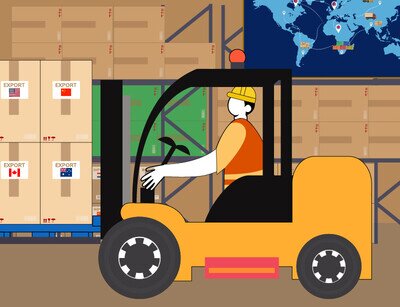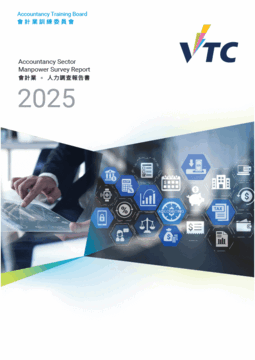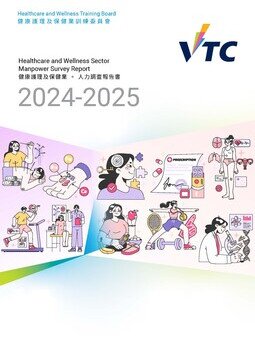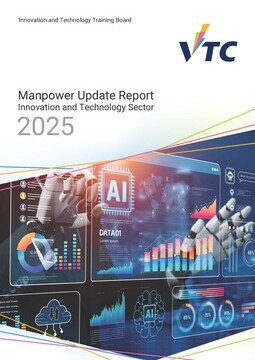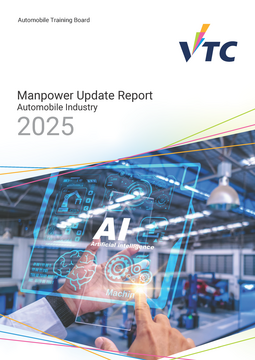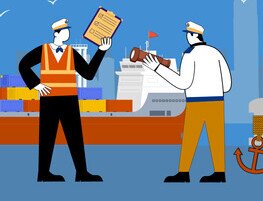Year 2024 Tooltips
Employees
Ocean Going
0
River Trade
0
Local Vessel
0
Shore-Based
0
Total
0
Note(s):
(1) The no. of employees includes both Hong Kong and non-Hong Kong employees.
(2) Shore-based personnel of Ocean Going, River Trade, Local Vessel companies are grouped under Shore-Based sector for presentation.
River Trade
0
Vacancy rate: 6.7%
Local Vessel
0
Vacancy rate: 3.6%
Shore-Based
0
Vacancy rate: 1.4%
Total
0
Vacancy rate: 1.5%
Note(s):
(1) Shore-based personnel of Ocean Going, River Trade, Local Vessel companies are grouped under Shore-Based sector for presentation.
(2) Vacancies in the Ocean Going sector are not applicable, as ocean going vessels should not have any unfilled positions when they depart to sea.
All the percentages are rounded to nearest 0.1%.
Ocean Going
0
Turnover rate: 5.1%
River Trade
0
Turnover rate: 7.4%
Local Vessel
0
Turnover rate: 4.3%
Shore-Based
0
Turnover rate: 9.1%
Note(s):
Shore-based personnel of Ocean Going, River Trade, Local Vessel companies are grouped under Shore-Based sector for presentation.
All the percentages are rounded to nearest 0.1%.
Monthly Income Tooltips
Note(s):
The above statistics did not include Non-Hong Kong employees and shore-based personnel of Ocean Going companies.
All the percentages are rounded to nearest 0.1%.
Monthly Income Tooltips
Note(s):
The above statistics did not include shore-based personnel of River Trade companies.
All the percentages are rounded to nearest 0.1%.
Monthly Income Tooltips
Note(s):
The above statistics did not include shore-based personnel of Local Vessel companies.
All the percentages are rounded to nearest 0.1%.
Monthly Income Tooltips
Note(s):
(1) The above figures did not include Non-Hong Kong employees.
(2) Statistics under Shore-based sector included shored-based personnel of Ocean Going, River Trade and Local Vessel companies.
All the percentages are rounded to nearest 0.1%.
Age of Employees
Note(s):
Shored-based personnel of Ocean Going, River Trade and Local Vessel companies are included under Shore-Based sector
All the percentages are rounded to nearest 0.1%.
58
Deck Officer (Ocean-going) Class 3
21
Marine Engineer Officer (Ocean-going) Class 3
16
Deck Officer (Ocean-going) Class 1
Note(s):
(1) The above statistics referred to Hong Kong Officers only.
(2) The figures above indicated the numbers of employees holding the respective classes/types of certificate as their highest qualification.
Age of Employees
Note(s):
Shored-based personnel of Ocean Going, River Trade and Local Vessel companies are included under Shore-Based sector
All the percentages are rounded to nearest 0.1%.
50
Deck Officer (River Trade) Class 3
45
Deck Officer (River Trade) Class 1 / Marine Engineer Officer (River Trade) Class 2
14
Deck Officer (River Trade) Class 2 / Marine Engineer Officer (River Trade) Class 3
Note(s):
The figures above indicated the numbers of employees holding the respective classes/types of certificate as their highest qualification.
Age of Employees
Note(s):
Shored-based personnel of Ocean Going, River Trade and Local Vessel companies are included under Shore-Based sector
All the percentages are rounded to nearest 0.1%.
1012
Coxswain Grade 2 / 60 Tons License
904
Coxswain Grade 1 / 300 Tons License
557
Engine Operator Grade 1 / Over 150 Horsepower Certificate
Note(s):
The figures above indicated the numbers of employees holding the respective classes/types of certificate as their highest qualification.
Age of Employees
Note(s):
Statistics under Shore-based sector included shored-based personnel of Ocean Going, River Trade and Local Vessel companies.
All the percentages are rounded to nearest 0.1%.
Note(s):
Class of Certificate is not applicable for Shore-Based personnel.
Preferred Education Tooltips
Note(s):
No information was collected for the sector.
Note(s):
No information was collected for the sector.
Preferred Education Tooltips
Note(s):
No information was collected for the sector.
Note(s):
No information was collected for the sector.
Preferred Education Tooltips
Note(s):
No information was collected for the sector.
Note(s):
No information was collected for the sector.
Preferred Education Tooltips
All the percentages are rounded to nearest 0.1%.
All the percentages are rounded to nearest 0.1%.
Manpower Demand
Average Annual Growth
0
2024
Actual
0
2028
Forecast
0
Note(s):
(1) The figures included employees and vacancies.
(2) The manpower forecast is based on the historical manpower survey data, together with the market trends in a longer term, technological developments of the industry and other social-economic determinants.
(3) The above figures did not include other staff of supporting services in Shore-Based sector.
All the percentages are rounded to nearest 0.1%.
Report

- Maritime Services
- 2024 Manpower Survey Report
Emerging Opportunities Amid a Shifting Maritime Outlook
Employers in the maritime sector were surveyed on their expectations for the business environment over the next two years. The findings reflect a steady outlook, with some signs of optimism across the industry. A portion of respondents (3.8%) anticipated an improvement in the business climate, with 74.1% of them expecting a business volume increase of under 25%. This outlook is supported by projections of rising demand for transport and logistics services and the potential for more favourable ship acquisition costs. Meanwhile, 24.5% of respondents expected stable or moderated business activity, with 51.1% projecting a business volume adjustment of less than 25%. Factors influencing these expectations include global economic trends and evolving cost structures. Overall, the results suggest a stable business environment with opportunities for growth, particularly through enhanced demand and operational efficiencies.
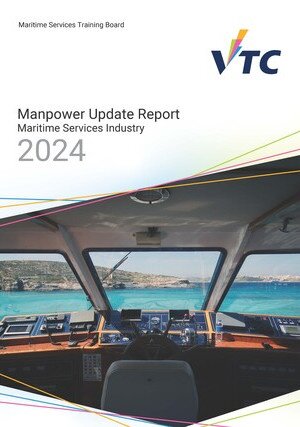
- Maritime Services
- 2024 Manpower Update Report
Growing needs for IGF Code and ESG training
The need for mandatory training on the International Code of Safety for Ships using Gases or other Low-flashpoint Fuels (IGF Code) is growing very fast since the number of Liquefied Natural Gas (LNG) ships is rising rapidly. While local training is not available due to the lack of expertise, local training providers may consider offering relevant programmes in collaboration with Mainland/overseas institutes. In the meantime, there have been growing concerns over sustainable shipping and responsible business practices within the industry. Investors, customers and insurers are integrating Environment, Social and Governance (ESG) risk factors into their decision-making processes. Maritime executives should be equipped with ESG concepts including ESG-related regulations, key ESG indicators applicable to the industry, as well ESG reporting framework, to assist their organisations in adopting appropriate ESG strategies.



















